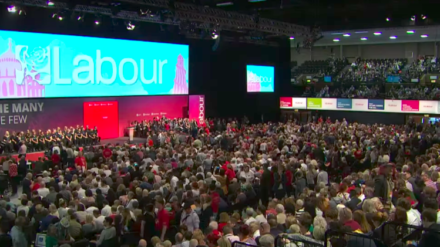
It’s 2018. The National Health Service is on its knees, decimated by cuts and fighting crisis after crisis. Homelessness is soaring, having increased by 169% since the Conservative Party’s return to government in 2010. Universal credit is utterly failing, and Britain’s post-Brexit future remains more uncertain than ever. There could not be a more appropriate time for the Labour Party to step forward, provide strong and passionate opposition and lead the fight towards a better future.
Instead, we’re turning on each other. Focusing on the divides within our movement, rather than the gaping divides in society. Calling on young, talented activists to either ‘pick a side’ or face an unknown future within our party. Resorting to school-like squabbles and attacking those we once called comrades. As a young, optimistic activist, it breaks my heart to watch factionalism tear our movement apart, and that’s exactly why I refuse to participate.
Factionalism is not a new phenomenon. Divisions have always existed within Labour and, indeed, within most political parties. Ralph Miliband’s excellent account of Labour history taught me that my party’s roots lie in the merging of several different groups, creating a broad-church of ideology. It would be naïve and idealistic to assume that any large body of members from across different areas, backgrounds, ethnicities, genders, sexualities and ages could fully unite on any given issue without significant differences quickly emerging. Factions have existed throughout Labour’s history and are likely to continue to exist. Debates and disagreements are healthy – they ensure that we are never set in our ways, never completely certain about what we hold to be true. But can they not exist without intimidation, bitterness and malice?
I know from experience that divisions are causing people to turn away, people whose contributions are valid and worthy of being heard. Increasingly, there are gifted people in this movement who feel like they no longer have a home. As a vocally anti-factional young activist, I have certainly felt as though my voice cannot be heard unless it is amplified by the strength of a faction. There have been moments where I have considered giving up because I am tired of having to defend the fact that it is possible to simply be a Labour Party member; nothing more, nothing less. Party membership, in itself, should surely be enough.
This is particularly prevalent in student politics, our most formative years, which we should surely spend exploring policy and politics, challenging ourselves and others, rather than being forced into an inescapable ideological box. University gives us the opportunity to use our Labour politics for good; to fundraise, to support local charities and to work towards causes like ending homelessness. There is so much pragmatic good we could be doing, but instead we waste our time bullying each other into factions. It is simply not good enough to respond to criticisms by blaming the other side, by hurling insults and calling for resignations. It is simply not good enough to allow this animosity to continue.
History has taught us that where there is unity, there is strength. We have over half a million members, members that joined for a multitude of reasons. The Labour Party is a powerhouse, a people-powered force with a real opportunity to change lives. I joined this movement because I wanted to fight for something better. I joined because the Labour Party I saw was one that welcomed me with open arms, one that was inclusive and unified because, ultimately, our movement was created to give a voice to the voiceless and to build a less divided society.
Clement Attlee, the man responsible for so much of what this country now holds dear, once emphasised the importance of “a willingness to believe that other people may perhaps be wiser than oneself”. Let’s learn the lessons that history teaches us. Let’s accept that we won’t always agree, won’t always come to the same conclusions and won’t always get it right. Let’s work together to oppose the malice, hate and greed that this country faces day after day. “Where there is unity, there is always victory.” I hope the Labour Party can remember that.
In solidarity.
Caitlin Prowle is Chair of LSE Labour.




More from LabourList
A gory night for Labour
‘SEND reforms are a crucial test of the opportunity mission’
Delivering in Government: your weekly round up of good news Labour stories